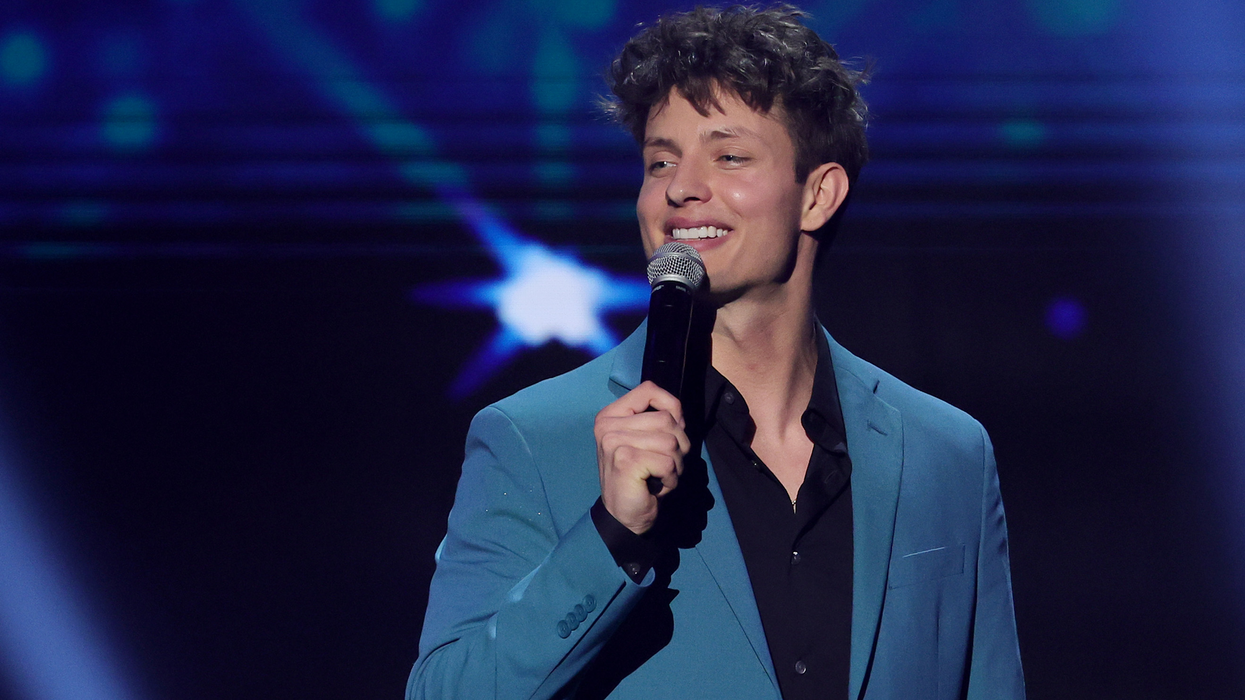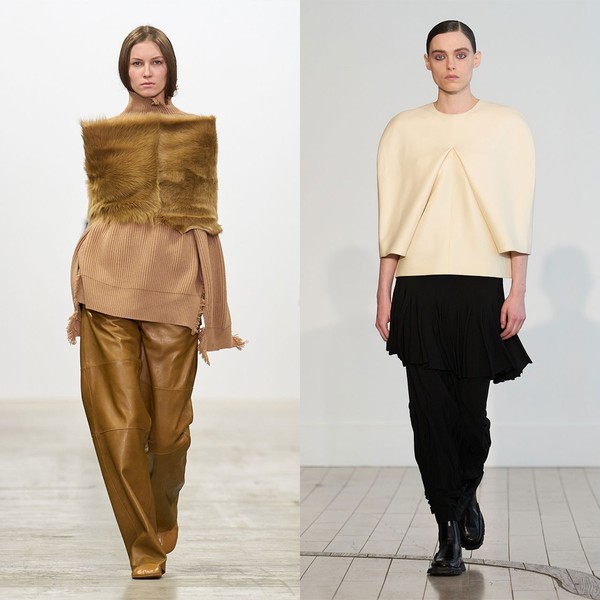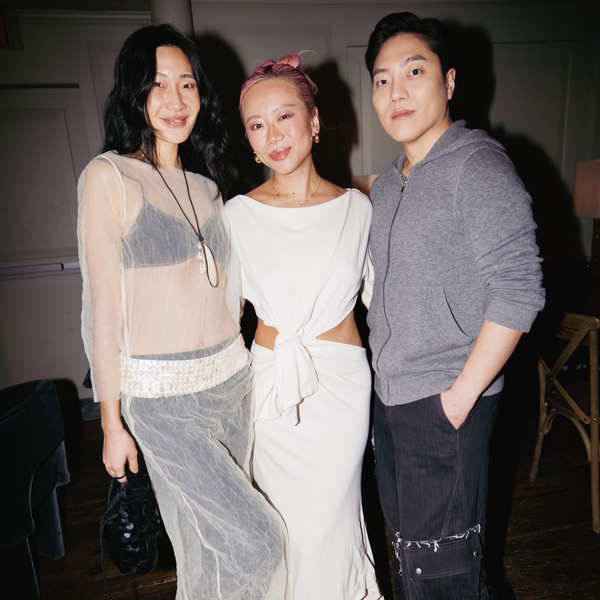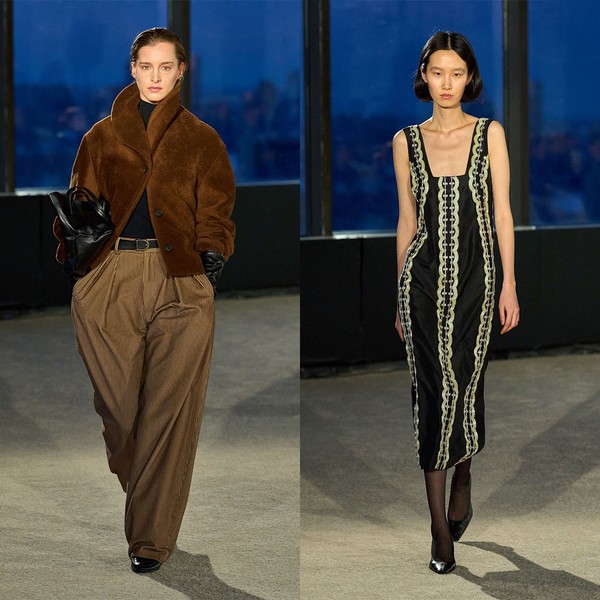The Achilles Heel of Male Comedians? Defensiveness.
Case Study: Matt Rife's Netflix Special Natural Selection |

I love stand-up comedy because I am a glutton for punishment. It’s vulnerable and unforgiving. When you fail, you have no one to blame but yourself. That is unless you happen to be a male comedian. Then, by some miracle of confidence, everyone but you is to blame for your failures on stage.
In the Los Angeles comedy circuit, I’ve seen this exact scenario play out over and over again: A male comedian tells an uninspired joke and holds for a beat where he expects a windfall of laughter and adulation. The crowd is silent. Maybe there is that invisible yet visceral recoiling of the audience. The comedian will now do one of three things: first, he might try to explain the joke, concluding that the genius of said joke went over everyone’s head, and if laid out clearly, he will get the praise he is due. (Since nothing is less funny than explaining a joke, this tactic has never worked. Never.) Second, he might get angry with the audience. “Woke PC culture has made everyone stuck up and pretentious. I am being censored.” Clearly, it’s the audience’s poor taste that has caused the joke to bomb. His final Hail Mary? He tries to guilt the audience. “So you all hate me now?” He is defeated and fussy. He is a misunderstood artist and, plot twist, a victim of the audience’s inherent cruelty. In each of these instances, he fails to see the simple truth of what just happened: he told a joke that just wasn’t funny.
Am I being hyperbolic? Absolutely. For the sake of making a concise argument, I am simplifying my terms. Are all male comedians blustering and defensive? No. I am friends with many upstanding male comedians who are introspective, hardworking, and graceful on stage. Are there non-male comedians who are shortsighted and offensive? Absolutely. But is it also true that nine times out of ten, the comedians to whom I am referring happen to be white, cis, heterosexual men? Yes. By the same token, would you be correct in calling me a stuck-up, man-hating, bitter old lesbian? Sure! If that makes you feel better, go for it.
When I first started performing stand-up in the comedy circuit two years ago, I used to play little games in my head to survive the doldrums of male mediocrity that I was subject to with such frequency. My favorite game was called “male comic bingo.” After seeing enough open mics, their material all started coalescing into predictable categories. These jokes became my bingo squares: masturbating, 9/11, hating on women for liking astrology, Trump, sports metaphors, porn, jizz, how dumb and/or crazy their girlfriend/spouse is, cancel culture, a racist impression or metaphor, and dick sizes (honestly, any mention of a penis basically counts as the bingo “free space”). When these jokes would inevitably be met with crickets from the audience, the above defensive mechanisms would be deployed.
Sitting in the audience being condescended to by a man about my lack of intelligence or my ‘woke mob’ mentality because a dick joke didn’t make me laugh, I always wanted to reply, “Oh, we get it. We just don’t like it.” Have I heard jokes that fall in all the bingo categories that have made me laugh? Yes, and sometimes even against my better judgment. But more often than not, this material these boys are so fiercely defending is simply Bush-era comedy that went in and out of style with shows like South Park. If I have a bingo card for every one of your jokes, maybe your material is just painfully predictable. I’m not offended; I’m bored.
As a rule of thumb, I try not to waste my time tearing other people down, but occasionally, criticism can give way to valuable insight. One case study, in particular, crystallized feelings that had been ambiently circling the comedy community–Matt Rife’s most recent Netflix special, Natural Selection. If you’re unfamiliar with Rife’s work, he became a viral sensation on TikTok for his off-the-cuff style of crowd work. As a self-proclaimed “walking red flag” and “probleMATTic” comedian–yes, that is, in fact, the title of his tour–he’s marketed himself successfully to the “anti-woke” and “anti-cancel culture” masses. While Rife has been circling the comedy scene for many years, his crowd work on TikTok, paired with his frat douche gym-sleaze good looks, catapulted him to mainstream popularity–he became particularly popular with women due to his flirtatious crowd banter and strong jawline. Speaking of said jawline, although he’s denied the mass speculation that he got plastic surgery, he insists his good looks have distracted from his artistry and kept him at arm's length from a larger male audience. If you’re wondering what kind of guy would get plastic surgery and veneers and then complain that his looks are a detriment to his career–you can see why he provoked an eye-roll amongst the comedy community long before his special aired on Netflix in November.
When Natural Selection debuted, it inspired a swift wave of backlash for very obvious reasons: he opens with a domestic violence joke, quickly denounces his fanbase for being mostly women, makes jokes about disabled children and school shooters, and boasts about cyberbullying his critics on Twitter. Andie, why did you waste your time watching this? As I’ve said before, I am a glutton for punishment. But as a student of the medium, I find it just as helpful to learn what people do wrong as it is to see what people do right. And boy, oh boy, was this a masterclass in what not to do. What I found to be the most awe-inspiring aspect of this special was the obstacle course of defensiveness and cognitive dissonance that Rife stumbled through with each bit of his 64-minute set.
Even from the top of his set, Rife sets up an antagonistic relationship with the audience. In his first joke, he says a hostess at a restaurant with a black eye should have been put in the kitchen so the guests wouldn’t see her, ending with the punchline: “But I feel like if she could cook, she wouldn’t have that black eye.” He then follows the joke, saying, “I was just testing the waters, seeing if y’all are going to be fun or not.” Yes, the joke is tasteless and offensive (and thoroughly discussed online), but what fascinates me is his swift preemptive strike against the audience. In testing if they were “fun,” he sets up a “you’re either with me or against me” dynamic, and this stuck out for a few reasons. First of all, I’m sure everyone in that audience was well aware of his comedic taste before buying a ticket to his show–even if you were only familiar with his crowd work on TikTok, you would know that he doesn’t shy away from edgy material about race, sexuality, gender, or disability. Second, he assumes that if the joke doesn’t do well, it’s the audience’s taste level that’s put to the test, not his skill as an entertainer. But regardless of how “fun” you are (aka, you think domestic violence is hilarious), the joke itself is a bit hackneyed. It’s on par with “get in the kitchen and make me a sandwich, woman” jokes on Reddit that even an incel would find a bit outdated. It’s sophomoric and, frankly, just lazy.
The rest of the special was, miraculously, all downhill from there. He spends the first seven minutes of the special talking about how women are stupid for liking astrology and crystal (male comic bingo, check!), the dick size of a special needs student (check), masturbating (check), and stealing porn from his stepfather (check). At some point, he jokes about school shooters, then mimics tapping his toe into the water–a call back to see if the audience is still “fun.” When a joke about semen in the shower (check) fails to elicit the response he was expecting, he says, “If the audience were 70% dudes instead of women, that would have landed better.” Would it? I know plenty of female comics who have a Rolodex of jizz jokes at their disposal. Again, he sets up a dynamic of antagonizing the audience, alienating his predominately female fanbase. He’s even said verbatim, “This special is more for guys.” Why does he feel the need to neg his audience into laughing?
By the finale of the special, Rife’s material began to crumble under the weight of his own cognitive dissonance, and it was stunning. Believe it or not, the last third of his set was entirely devoted to complaining about a benign inconvenience on an airplane. I didn’t even think to add “whining about air travel” to my male comic bingo because it was already hack by the 90s. To spare you the details, Rife is angry that he’s being asked to put his backpack under the seat in front of him at the expense of his precious legroom. If that wasn’t riveting enough, he tells us how he tweeted that exact story, which received backlash from people calling him immature and selfish. At this point, I was getting bored and surrendering to the allure of scrolling on my phone, but then Rife said something that re-captured my interest. In ranting about his online haters, he said, “You’re never gonna hurt my feelings. I’ve been dead inside for so long,” then continued, “But what I’ve learned through therapy or whatever is that I’m a very defensive person apparently. So if you come for me, I’m gonna fuck you up verbally, dude.” In the midst of a 20-minute tantrum about how people were mean to him on Twitter, this man is claiming he is immune to “hurt feelings.” This was the first time during the special that he fully had my attention–the schadenfreude I got from Rife’s verbal whiplash was spectacular. Acknowledging his own defensiveness was like watching him walk right up to the brink of self-awareness, then plugging his ears and going “La la la” instead of facing the music.
The set ended with him detailing a Twitter argument with a woman who had commented negatively on his airport tweet. When she very astutely called him a “crybaby little bitch” he decided to go for the jugular. After deducing from her profile that she was a “heavier-set woman,” he commented, “Had you not been taking up two seats, there would have been room to safely secure my backpack.” A man who just claimed his feelings could not be hurt was now gloating to a packed theater (not to mention Netflix’s global audience) about how he used his platform to cyberbully a stranger about her weight. He goes on and on about how “everybody these days wants to play the victim these days” while so ironically insisting on his own victimhood in this tedious airplane saga. He then has a soap-box moment about how he is still brave enough to post every day despite all the hate. “I just want to make people smile and make them happy,” he pontificates, just moments after proudly body-shaming a stranger. At the end of this self-congratulatory yet entirely hypocritical “uplifting” message, he says–with a faux humbleness wreaking of egomania–“But what do I know? I only do crowd work, right?” And I kid you not, he did a mic drop. Yes, in a set rife with jokes about jerking off, this was perhaps the biggest masturbatory climax I’ve ever seen in a stand-up set.
While Matt Rife is certainly not the only comedian committing said crimes of defensiveness and hypocrisy, his rapid ascent to fame has made him an incredibly visible target. Other comedians like Dave Chappelle and Ricky Gervais have also come under fire for their blatant transphobia and white-knuckle grip on “punching down.” Like Rife, this has won them the support of one of America’s most lucrative consumer bases: bigots. Gervais, like Rife, spent a large portion of a recent Netflix special griping about mean comments left on his tweets and smugly re-reading his comebacks. To any comic that does this, I always want to ask–why would you waste precious moments of something as hard-won as an hour-long comedy special re-hashing a Twitter argument? It always feels akin to that friend who claims they are “so over” their situationship then, after one drink, has you psychoanalyzing every text message they sent during the duration of their three-week relationship. The lady doth protest too much, and it’s hard to watch. As someone that grew up a fan of the early works of Ricky Gervais and Chapelle, their late-stage career commitment to antagonizing the queer community is disappointing and repulsive. In contrast to Rife, though, they are seasoned professionals. Their insecurity and defensiveness are dressed up with good writing and well-crafted delivery, which makes their opinions even more insidious. What struck me most about Rife’s special is how baldly his contradictions were laid out. I could see the machinations of his defensiveness whirring away under the thin veil of his juvenile writing.
At its core, defensiveness is poison to good comedy. Comedy at its finest is vulnerable. In risking grave humiliation through the unarmored medium of standing alone with a microphone, you are forging a communion with the audience. The defenselessness of the form is what makes it unique. Through sharing stories, forging abstract connections, sharing pain, and yes, even occasional dick jokes–comics have the unique ability to shine a light on even the most unflattering and shameful truths that thrive in the shadow of polite society. The cathartic release of this shame forges a bond between the audience and the performer–an emotional symbiosis. Defensiveness is the antithesis of what makes comedy compelling. Punching down reinforces shame. Antagonizing the audience denies any connection. Predictability neutralizes the potential of revelation. Risk, which is vulnerability in action, cannot be taken in a defensive stance. If your joke fails, it’s not the fault of the audience. You can’t get angry with them or blame them for not being “fun” because, at the end of the day, you need them much more than they need you. Being an entertainer is like being an elected official; your platform only exists only insofar as there is an audience to bear witness to your platform. Negging them into liking your material is just as effective as bullying someone into falling in love with you. You can cry “cancel culture” if feeling like a victim helps you feel like a misunderstood artist, but at the end of the day, blaming the audience is a straw man. They are not punishing you; they have just decided to stop giving you their most valuable and lucrative resource: their attention.




